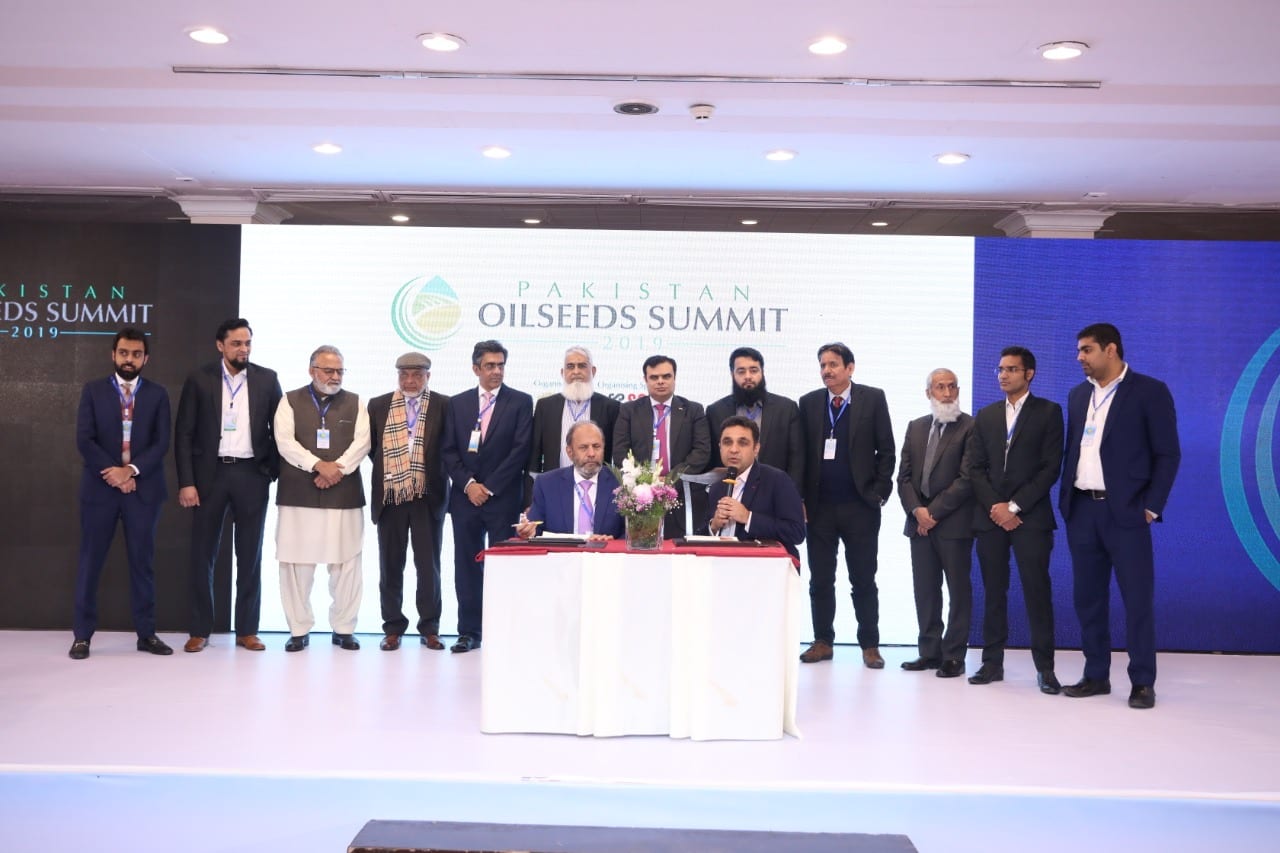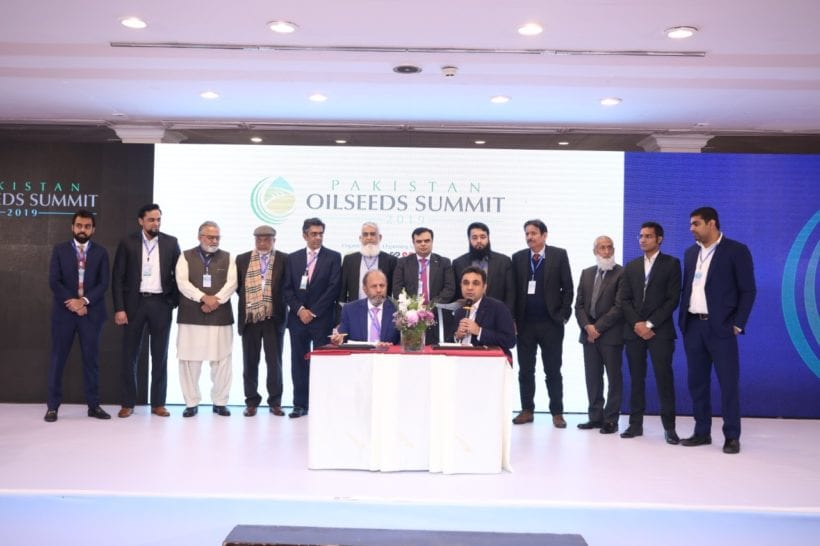Pakistan Solvent Extractors Commit to Purchasing 496,500 MT of U.S. Soy Valued at nearly $200 Million at Pakistan Oilseeds Summit
- Category:
- General News

Approximately 400 people, including those from all sectors of the soy and soymeal industries, attended the inaugural Pakistan Oilseeds Summit held on December 6 and 7 in Lahore, Pakistan.
A formal signing ceremony was held during the event, at which 46 total buyers signed a certificate and affirmation of intent to purchase nearly half a million metric tons of U.S. Soy valued at nearly $200 million from two different shippers with delivery in February 2020. USSEC was a sponsoring partner of the summit along with the All Pakistan Solvent Extractors Association (APSEA).
USSEC and American Soybean Association (ASA) director Brian Kemp, an Iowa farmer, also spoke at the summit. His presentation covered soybean production specific to his farm, and overall U.S. production. Attendees had many questions for Mr. Kemp as they have a continued, growing interest in the production of U.S. Soy.
Zain Mahmood, director at Majeed Group of Companies in Pakistan, which includes a large seed crushing facility, said his company has gone from crushing soybeans four months of the year to ten months. “The knowledge and support from USSEC helped us increase our production and increase our U.S. soy purchase,” Mr. Mahmood said.
Pakistan is the sixth most populous country in the world and the growth rate of population is 2.9% per year. Oilseed crush in Pakistan has grown from less than a million metric tons to more than 3.3 million tons within three years, and this growth is likely to continue, making Pakistan a vital export market for U.S. soy producers.
Industry leaders are working with Pakistani government officials on increasing acceptance of GMO oilseed and feed meal imports, to remove any future barriers to importing U.S. Soy. The issue in Pakistan is not just one of understanding of the technology, but also standardization of regulation and the government is working on helping industries, including animal agriculture to allow them to use better soymeal.
